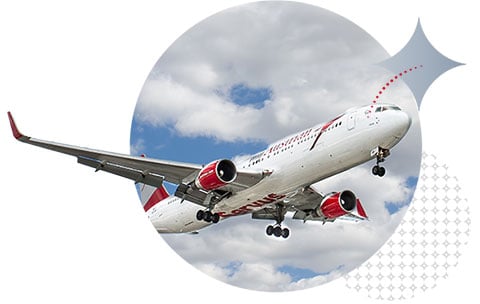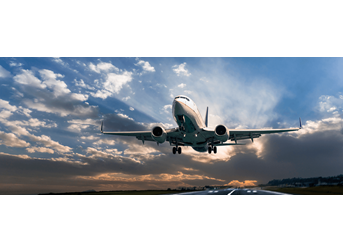Currency Exchange Solutions for the Airline Industry



International payment services that save airlines time and money
4 minute readGiven the international nature of the aviation and airline industry, it isn’t surprising that airline carriers are exposed to foreign exchange (FX) risk. With the dollar hitting a 20-year high in 2022, non-US airlines have had to pay more for oil, maintenance and leasing charges, all of which are typically dollar-dominated, and the cost has been passed on to airline passengers in the form of higher ticket fares.
Given that many airlines are still recovering from the pandemic and having to deal with substantial increases in the cost of jet fuel, it is more important than ever that airlines use effective currency exchange solutions that can minimise their exposure to exchange rate volatility and enable them to remain competitive.
What contribution does the airline and aviation industry make?
There is no question that aviation is a British success story. In the UK, the air transport sector contributed £5.47 billion to the economy in 2019, and the entire aviation industry contributed almost £22 billion.
Globally, the aviation industry makes a truly colossal contribution to the world economy: it supports $3.5tn, or 4.1%, of the world's GDP and it plays a critical role in facilitating international trade: 35% of the world’s trade by value, or $6tn worth of goods, is transported by air cargo every year. Whilst the airline industry has been confronted by uniquely challenging circumstances recently by the Coronavirus outbreak, the International Air Transport Association’s prediction that overall traveller numbers will reach 4bn in 2024, ahead pre-COVID levels, suggests that the aviation industry has a bright future.
How international payments and exchange rates affect the airline industry
Airline carriers frequently incur costs and receive revenue in a range of different currencies. This gives rise to foreign exchange risk; the primary foreign currency exposure for airlines tends to be the US dollar, because the most significant cost items, e.g., fuel, maintenance, lease payments, etc. are typically denominated in dollars. Similarly, transfers for staff and logistical payments often requiring settlement in different currencies.
Fluctuating exchange rates also affect the composition of passenger demand. The dollar buys approximately 20% more in 2022 than it did in 2021, and Americans flocked to Europe in far greater numbers as a result; transatlantic flights to Europe surged by 250% in first half of 2022. Falls in the value of the Euro tend to have a net positive effect for airlines, because making trips to Spain cheaper for Americans outweigh the negative impact of making trips to the US pricier for Spaniards.
Given the sheer number of international payments that airlines make and the transfer fees associated with them, finding the right currency exchange solutions can save vast sums of money and help airlines remain in profit.
How we can help your business save money
Our experienced account managers attend to the needs of thousands of businesses, a significant proportion of which are within the airline and aviation industry. We cater for their foreign exchange needs and help them find currency solutions that can limit their currency exposure and help protect their profits.
Partnering with Moneycorp enables you to set up an international payroll and manage staff payments with ease. Whether you need to make ad-hoc payments or transfers on a regular basis, can cater to your requirements.
With 24/7 access to your multi-currency online account, your business can benefit from live statements for managing and reporting on currency costs and revenue. In addition, you can set up and process currency transfers in more than 130 currencies from your online account.
Our team of foreign exchange specialists are on hand to assist you. You’ll also benefit from a wide range of FX tools, including API integration for our payment solutions and currency hedging strategies.
How has Covid-19 affected the Airline Industry?
The pandemic caused an unprecedented decrease in passenger demand: according to official figures from the Civil Aviation Authority, passenger numbers in the UK fell by 223 million in 2020, an annual decline of 75%. While there will be challenges ahead on the road to recovery, the airline industry will be of huge economic and strategic importance to the UK for the foreseeable future. The recent announcement by IAG, owner of British Airways, that its revenues have returned to pre-pandemic levels suggests that the recovery for the industry as a whole will come sooner rather than expected.
The Transformation of Air Travel
Our whitepaper looks at the implications of the rapidly transforming airline industry and how to manage revenue and costs when working overseas




